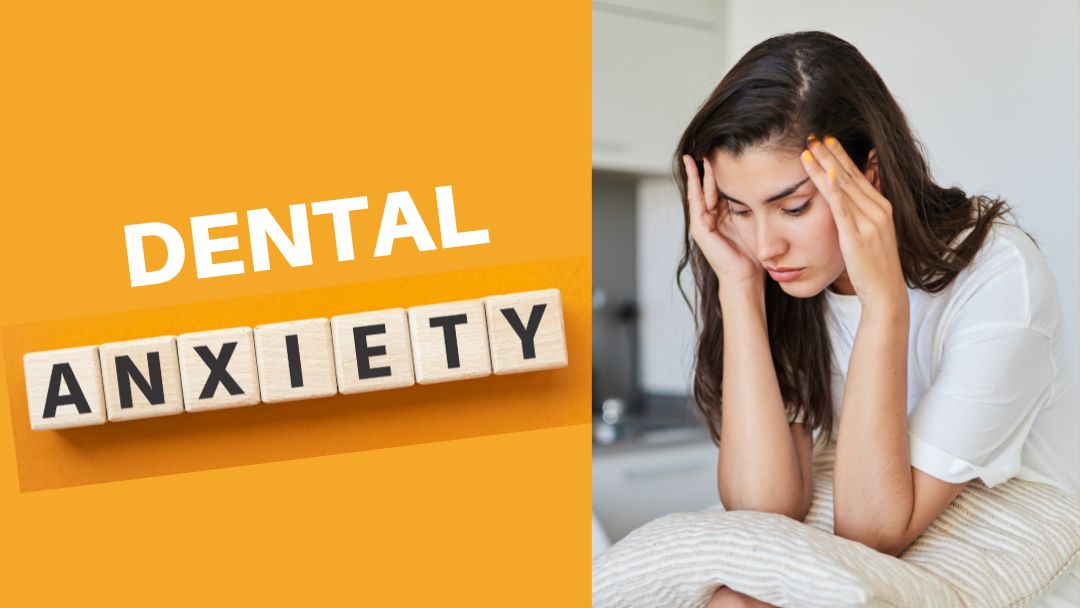Outline
- Introduction
- Understanding Dental Anxiety
- The Impact of Dental Anxiety on Oral Health
- Common Triggers of Dental Anxiety
- Communicating with Your Dentist
- Preparing for the Dental Visit
- Distraction Techniques and Relaxation Methods
- Sedation Dentistry: An Option for Anxious Patients
- Seeking Support: Dental Anxiety Resources
- Pediatric Dentistry and Dental Anxiety in Children
- Overcoming Dental Anxiety: Personal Stories and Testimonials
- Conclusion
- FAQs
Introduction
Visiting the dentist is an essential part of maintaining good oral health, but for many people, the thought of sitting in the dentist’s chair can evoke intense fear and anxiety. Dental anxiety is a common issue that affects individuals of all ages. In this article, we will explore the topic of dental anxiety, its impact on oral health, and provide strategies for overcoming fear of the dentist.
Understanding Dental Anxiety
Dental anxiety refers to the fear or apprehension individuals experience when faced with dental procedures or even the thought of visiting the dentist. This anxiety can stem from various factors, including past traumatic experiences, fear of pain or needles, or a general feeling of helplessness in the dental chair.
The Impact of Dental Anxiety on Oral Health
Dental anxiety can have a significant impact on oral health. Individuals with dental anxiety may avoid or delay dental visits, leading to untreated dental problems such as tooth decay, gum disease, and infections. Neglected oral health can result in more extensive and costly dental treatments in the long run.
Common Triggers of Dental Anxiety
Understanding the common triggers of dental anxiety can help individuals address their fears. Some common triggers include the sound of dental equipment, the smell of dental materials, fear of needles or injections, and feeling claustrophobic in the dental chair. Identifying personal triggers can assist in developing coping mechanisms.
Communicating with Your Dentist
Open and honest communication with your dentist is crucial in addressing dental anxiety. Let your dentist know about your fears and concerns before the dental visit. A compassionate and understanding dentist can tailor the experience to accommodate your needs, making you feel more comfortable during the appointment.
Preparing for the Dental Visit
Preparing yourself mentally and physically before a dental visit can help alleviate anxiety. Practice deep breathing exercises or meditation to relax your mind. Plan your visit during a less stressful time of the day and bring a trusted friend or family member for support.
Distraction Techniques and Relaxation Methods
During the dental appointment, distraction techniques and relaxation methods can be helpful in reducing anxiety. Listening to calming music, using noise-canceling headphones, or watching a movie can divert your attention from dental procedures. Techniques like progressive muscle relaxation or visualization can promote relaxation.
Sedation Dentistry: An Option for Anxious Patients
For individuals with severe dental anxiety, sedation dentistry may be an option. Sedation techniques such as nitrous oxide (laughing gas), oral sedatives, or intravenous sedation can help patients achieve a relaxed state during dental procedures. Consult with your dentist to determine the most suitable option for your needs.
Seeking Support: Dental Anxiety Resources
Numerous resources are available to support individuals with dental anxiety. Online forums, support groups, and educational materials provide information, tips, and a sense of community for those facing similar challenges. Seeking professional counseling or therapy can also help address underlying anxiety issues.
Pediatric Dentistry and Dental Anxiety in Children
Dental anxiety can affect children as well. Pediatric dentists are trained to create a child-friendly environment and use techniques to alleviate anxiety in young patients. Early dental visits, positive reinforcement, and age-appropriate explanations can help children overcome fear and establish a positive attitude towards dental care.
Overcoming Dental Anxiety: Personal Stories and Testimonials
Reading personal stories and testimonials of individuals who have successfully overcome dental anxiety can provide encouragement and inspiration. Many people have conquered their fears and now maintain regular dental visits without anxiety. These stories highlight the importance of taking small steps, seeking support, and developing trust in dental professionals.
Conclusion
Dental anxiety should not prevent individuals from receiving essential dental care. By understanding dental anxiety, communicating with your dentist, and implementing coping strategies, you can overcome your fear and maintain good oral health. Remember, dentists, are committed to providing a comfortable and supportive environment for anxious patients.
FAQs
- Can dental anxiety be completely eliminated?
- While it may be challenging to completely eliminate dental anxiety, it is possible to manage and reduce its impact through various techniques and support systems.
- What can dentists do to help patients with dental anxiety?
- Dentists can provide a supportive environment, communicate effectively, and offer sedation options to help patients manage their anxiety.
- Is dental anxiety more common in children or adults?
- Dental anxiety can affect individuals of all ages, but it is often more prevalent in children due to unfamiliarity with dental procedures.
- How long does it take to overcome dental anxiety?
- The time to overcome dental anxiety varies for each individual. It may require multiple dental visits and consistent effort to gradually reduce anxiety levels.
- What are some self-help techniques for managing dental anxiety?
- Self-help techniques include deep breathing exercises, visualization, distraction techniques, and relaxation methods like progressive muscle relaxation.
